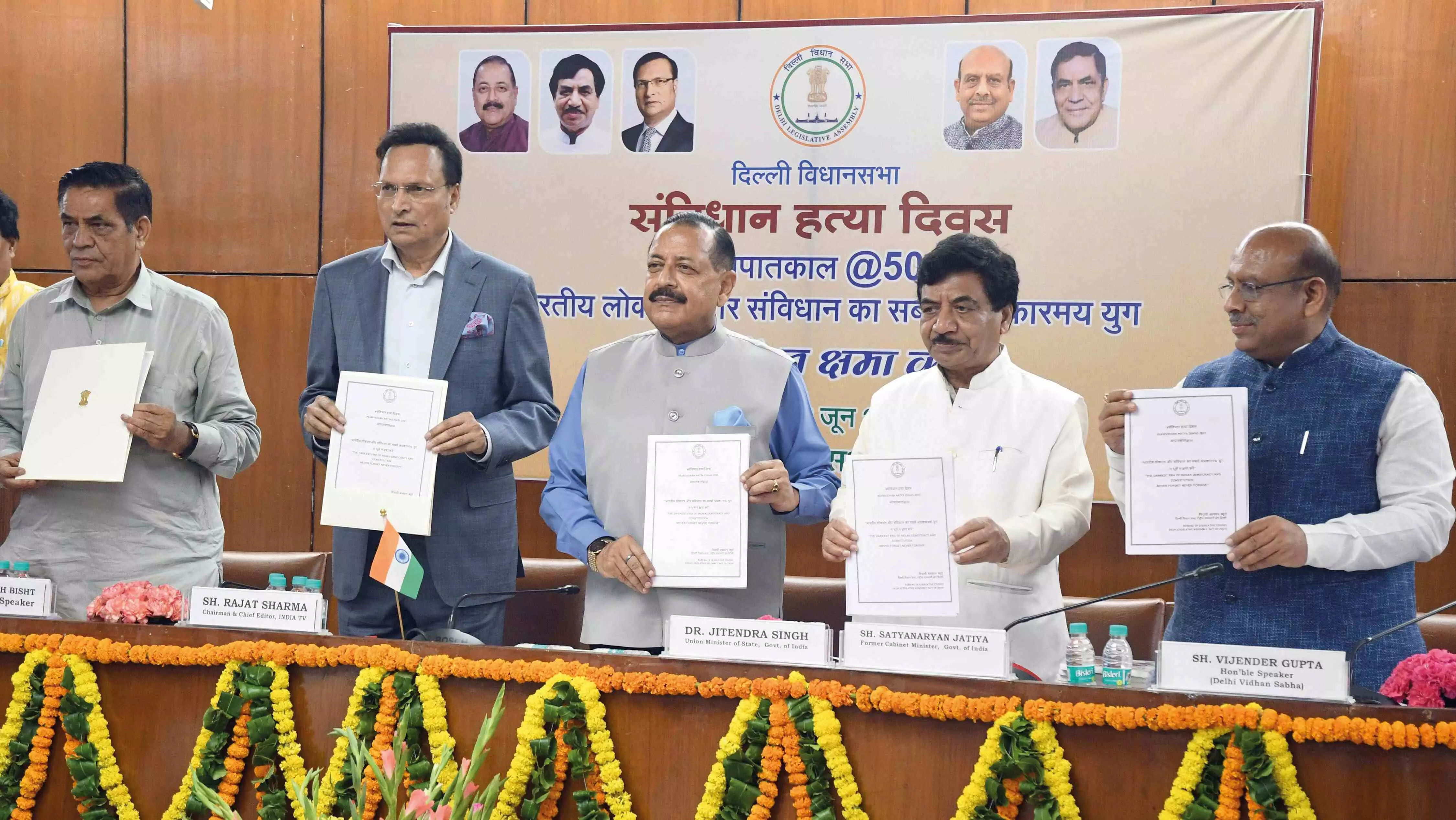
New Delhi, June 28 -- A symposium held at the Delhi Legislative Assembly on Saturday to mark 50 years of the Emergency saw leaders, journalists and civil society members reflect on the period as one of the darkest chapters in India's democratic history. The event, titled "Na Bhoolein, Na Shama Karen", called for renewed national introspection and a commitment to safeguarding democratic values, an official statement said. Addressing the gathering, Union Minister Dr Jitendra Singh said that the Emergency was imposed due to a "self-righteous and authoritarian mindset, combined with opportunism and a lack of democratic ethos," and added that such tendencies still exist in the country's political landscape. The symposium also saw the release of a commemorative booklet titled "Emergency at 50: A Call for Justice, Introspection and Accountability", along with the screening of a documentary on the events and impact of the 1975-77 Emergency.
Delhi Assembly Speaker Vijender Gupta called for the formation of a new commission to investigate the full scale of excesses committed during the Emergency. He said the 1978 Shah Commission Report was unable to fully document the extent of constitutional violations, human rights abuses, and administrative overreach. "Those responsible have still not been brought to justice," he added. Gupta also questioned the controversial inclusion of the words 'socialist' and 'secular' in the Preamble of the Constitution through the 42nd Amendment during the Emergency. "Such changes should be made through national consensus, not under the cover of authoritarianism," he said. Former Union Cabinet Minister Satyanarayan Jatiya said the Preamble reflects the core values of the Constitution, and its sanctity must be preserved. "No single leader can alter its structure based on personal ambition," he said, accusing the then government of acting in a manner similar to the colonial regime. Veteran journalist Rajat Sharma, Editor-in-Chief of India TV, shared a personal account of his arrest as a 17-year-old student activist during the Emergency. "We were detained for protesting and raising slogans. On the first night itself, censorship silenced the press," he said.
Published by HT Digital Content Services with permission from Millennium Post.
